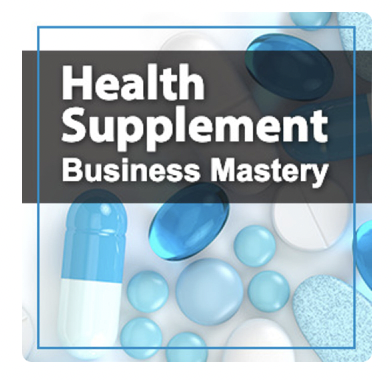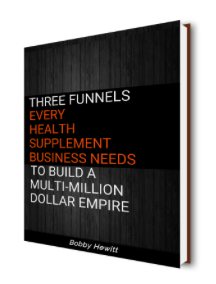Not all health supplement buyers have the same affinity towards health.
Moreover, they are not motivated by same messaging.
otivated by same messaging.
That’s not surprising, people are different.
And people buy health supplements differently.
Yet, most health copywriters use one message that has the broadest appeal in order to convert browsers into buyers.
Selling to everyone in the exact same way is a recipe for low sales.
What appeals to an extremely health conscious person does not appeal to someone with a lower affinity towards health.
Broadly speaking people either have a high health affinity or a low health affinity.
What is Health Affinity?
People with a high health affinity tend to take several different kinds of vitamins and supplements.
There may be a dozen supplement bottles in their kitchen cabinet.
Of which, they take everyday.
They are typically more active and health conscious.
They are more knowledgeable about supplements compared to the low health affinity group.
The low and high groups also have different beliefs when it comes to health and supplements.
And each group behaves differently when it comes to buying and taking supplements.
The high affinity group is motivated by evidence based claims and information on clinical trials.
While that’s not a buying motivator for the low affinity group at all.
The low affinity group is motivated by a simpler message.
A message like “All The Nutrients and Vitamins a Body Needs” will resonate a lot more with the low affinity group.
Why?
Because, the low affinity group knows less about supplements.
Their marketplace sophistication is low.
They are a different type of buyer.
And more importantly, they don’t have the same desire to go as deep into learning as much about supplements as the high affinity group.
What works for selling supplements to one group does not work for another.
So the exact same marketing message of “All The Nutrients and Vitamins a Body Needs” to the higher affinity group is meaningless.
In fact it will compleatly turn away the high affinity group.
Resulting in a lost sale.
The match of market affinity to the message affects conversion rate, but what about price?
Could Health Affinity Also Be Related to Price?
Affinity is not only an indicator of what messaging influences a sale but also each groups willingness to buy.
More specifically the amount they are willing to spend.
The high affinity group is willing to spend more than the low affinity group.
So a supplement bottle priced at $59 is more likely to sell to a high health affinity person.
Whereas that price point is too high for low affinity person.
For the low affinity person, you need more marketing strength to support the value of the product in order to get them to buy at the $39 – $67+ price range.
Beyond affinity, gender also plays a factor in price acceptance.
For example, women are willing to spend more on supplements than men regardless of affinity level.
Which is why the sweet spot for the dietary supplement market always targets women over men.
With the exception of specific male niches.
Conclusion
How you market supplements, through messaging and price, does influence a sale.
If you can target a specific group based on affinity, you’ll have a higher chance of getting the sale.
However, when people think of targeting they only think ad set targeting.
More broadly, targeting generally aimed at women 45+ for supplement ads.
But targeting needs to be built into the marketing messaging.
A marketing message that speaks to the prospects affinity towards health.
People with a lower health affinity are motivated to buy with a simpler message.
A prospect with a higher affinity towards health wants more detailed information in order to buy.
There is cross over between the two groups however.
Certain messaging does appeal to both.
For example, Vegan friendly and Non-GMO are appealing to both low and high health affinity groups.
So when designing your marketing strategy, including positioning, copy and price, don’t discount the affinity towards health of the market you’re going after.
Discover the 3 funnels that can help your health supplement business succeed.

Listen to the Health Supplement Business Mastery Podcast for for dietary supplement entrepreneurs and marketers.



